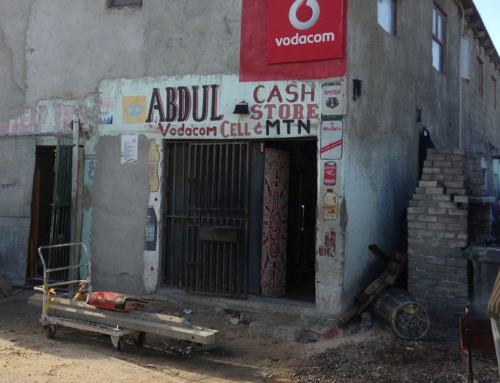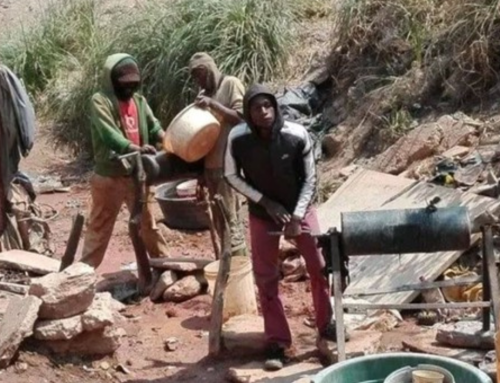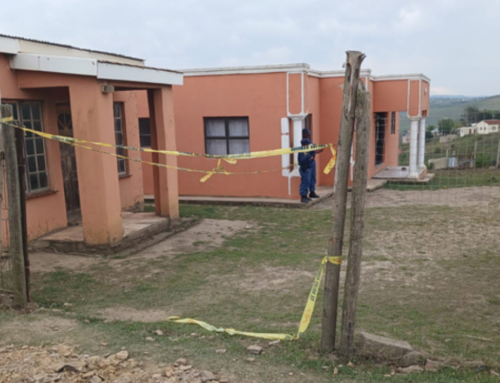 Statement by Zandile Phiri, Acting Secretary General of the United Democratic Movement
Statement by Zandile Phiri, Acting Secretary General of the United Democratic Movement
The United Democratic Movement (UDM) is concerned about the recent wave of extortion crimes, which is primarily ravaging the Western Cape, Eastern Cape, and KwaZulu-Natal. What started as isolated incidents within the construction industry has now evolved into a nationwide crisis affecting virtually all sectors of the economy. These extortion rackets have expanded their reach, to even demanding so-called “protection fees” from small businesses and street vendors, further deepening the country’s economic instability.
Amid this national crisis, the recent arrest of eight police officers in Cape Town and three in Pretoria for extorting shop owners is a disheartening image of the extent of the problem. These isolated incidents of police officers, some of whom had only been in service for three weeks, allegedly targeted shops, using their authority to intimidate and extort cash from the respective business owners. These cases are not just isolated incidents of corruption; they show a systemic issue in law enforcement that undermines public trust and further encourages criminality.
For a country already struggling with widespread extortion, police involvement in these crimes only deepens the crisis. Law enforcement officers who are supposed to be the front line against crime sometimes contribute to the very criminality they are meant to fight. Corruption in the police force aggravates the already unstable situation, as extortion mafias wreak havoc on sectors crucial to South Africa’s economy, particularly construction; the sector, which employs over 1,2 million people and plays a key role in the country’s COVID-19 recovery efforts, has seen numerous projects delayed or shut down due to extortion demands. These delays ripple across the economy, affecting suppliers, workers, local businesses, drive investment away, and stall much-needed infrastructure development in the country.
Extortion has now also infiltrated small businesses, street vendors, and hawkers, many of whom are already on the brink of collapse due to economic pressures. The demand for protection money has turned an economic hardship into a life-and-death struggle for survival as it is reported that when some of these entrepreneurs refuse to pay up or do not have money to pay up, they are usually assaulted and even killed by extortionists. When police, as demonstrated in the recent Cape Town and Pretoria cases, are found to be complicit in such crimes, the entire law enforcement system is compromised.
The statistics of this cowardly crime reflect the severity of the situation at hand and the system’s dysfunction. According to South African Police Service reports, between April 2019 and March 2024, 6,056 extortion cases were reported across the country, resulting in 2,389 arrests, but only 178 convictions were secured, which shows that urgent reforms need to be done on our law enforcement and criminal justice systems.
The UDM believes that this crisis needs a response that is multifaceted, with law enforcement agencies and government programs playing a pivotal role. One such agency is the Independent Police Investigative Directorate (IPID), which is responsible for investigating allegations of police misconduct, including corruption and criminality. IPID’s role in cases like the arrest of these eight Cape Town police officers is crucial. By investigating these cases thoroughly and holding corrupt officers accountable, IPID can help restore public trust in the police. However, their work must not always be reactive as is mostly the case; it must be preventative as well, this by identifying corrupt practices within law enforcement before they spiral out of control. This means having an IPID that robustly strengthens oversight mechanisms, conducts regular audits, and ensures that police officers who abuse their power face swift and visible consequences.
However, IPID must be backed by an intelligence-driven law enforcement approach. The Special Investigating Unit and the Hawks need to collectively work together to ramp up their efforts in combating extortion syndicates and must demolish not only the criminal networks but also the political and financial backers who allow these syndicates to continue.
A well-equipped and trained police force is also key to stopping extortion. If the police can act quickly on reports of extortion and arrest those responsible, it would deter criminals from engaging in such activities. For arrests to lead to convictions, prosecutors need solid evidence and must build strong cases.
This requires better coordination between law enforcement agencies and prosecutors. A more streamlined process between investigations and court proceedings would mean faster trials and more successful convictions. This would send a clear message to extortionists that they will face severe consequences if caught.
South Africa’s hope for economic growth is at risk of being permanently derailed unless decisive action is taken now. We need coordinated action across the board and strong political will to root out corruption within law enforcement and dismantle extortion syndicates. The future of South Africa’s economy, the rule of law, and the welfare of its citizens depend on it. Without a swift and aggressive response, the nation risks falling deeper into a cycle of corruption, violence, and economic stagnation. For the sake of South Africa’s future, we must act now.




























